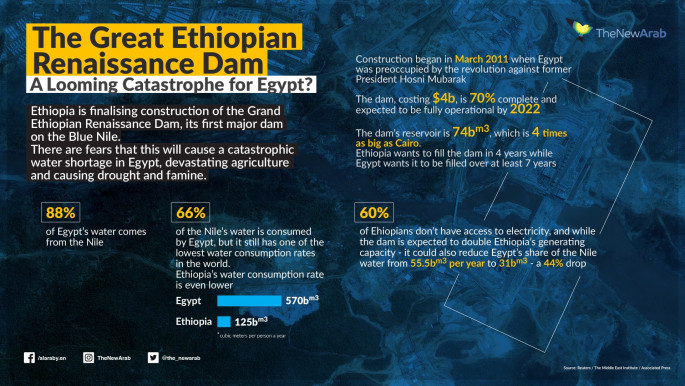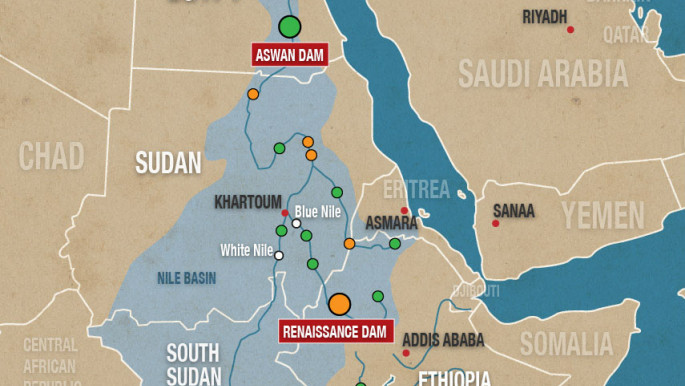Follow us on Twitter and Instagram to stay connected
Nile states agree further talks amid reports of progress on dam dispute
Officials from Egypt, Ethiopia and Sudan say they have agreed to hold two technical meetings in coming weeks in an effort to resolve a number of issues revolving around a $5 billion dam project on the Nile River.
The foreign ministers of the three countries met in Washington on Monday with U.S. Treasury Secretary Steven Mnuchin and World Bank President David Malpass in an effort to resolve the dispute.
In a joint statement, the group of officials said progress had been made in earlier meetings with the ministers of water resources from the three countries.
Read more: Ethiopia’s Great Renaissance Dam – A Catastrophe for Egypt?
Two more technical meetings will take place in coming weeks centered on coming up with rules and guidelines for the filling and operation of the dam, which have been major points of contention between Egypt and Ethiopia, the statement said.
“The ministers recognize that there are substantial benefits to all three countries in developing rules and guidelines to address drought conditions,” the joint statement said.
The statement said the implementation of these technical rules will be undertaken by Ethiopia but may be adjusted by all three countries in accordance with water conditions in any given year.
The group of officials will reconvene in Washington on January 13 to review the results of the technical meetings which will be held in Khartoum, Sudan, and Addis Ababa, Ethiopia, the statement said.
The project, called the Great Ethiopian Renaissance Dam, is around 70% complete and promises to provide much needed electricity for Ethiopia's 70 million people. However, Egyptians are concerned that filling the reservoir behind the dam could significantly reduce the amount of Nile water available to them.
Egypt has for years been suffering from a severe water crisis and farmers try to make the most of the scarce water supplies. Nearly 88% of Egypt’s water comes from the Nile.
The joint statement said that the rules and guidelines developed for the operation of the dam would include ways to mitigate drought conditions based upon the natural flow of the Nile and water release rates from the dam’s reservoir.
Speaking at the United Nations General Assembly this fall, Egyptian President Abdel-Fattah el-Sissi said he would never allow Ethiopia to impose a “de facto situation” by filling the dam without an agreement on its operation.
“While we acknowledge Ethiopia’s right to development, the water of the Nile is a question of life, a matter of existence to Egypt,” he said.
However, Sisi has been criticised by Egyptians for his handling of the crisis with many Egyptians saying that he hasn’t done enough to protect Egypt’s water supply.
In October, Mohammed Ali, a dissident construction contractor who had previously revealed that Sisi had been using public money to build luxurious palaces for himself even called for the execution of the president and his ministers for treason over the matter of the Nile.
Ali said that the autocratic president had "kept Egyptians in the dark" about the dangers of the Ethiopian dam, which analysts say could bring about a situation of “absolute water scarcity” in Egypt.



